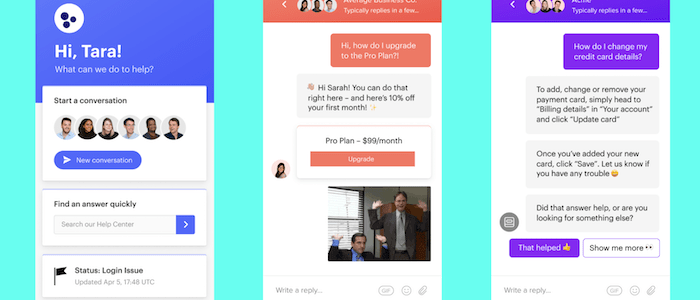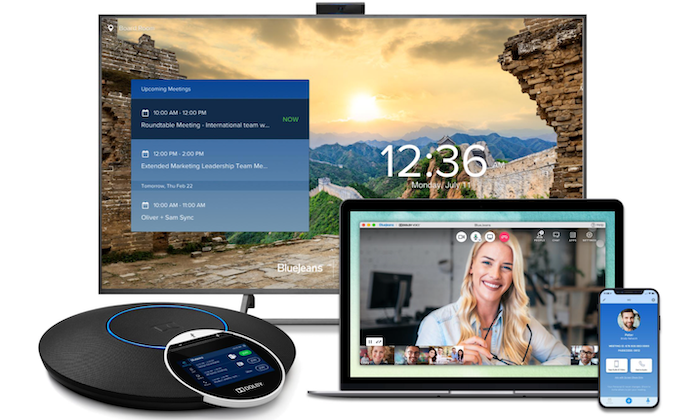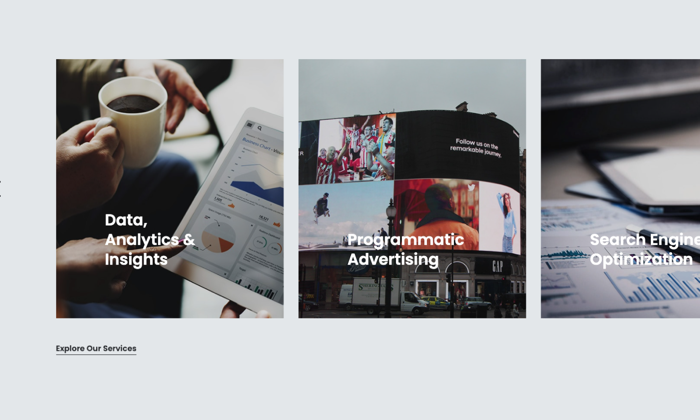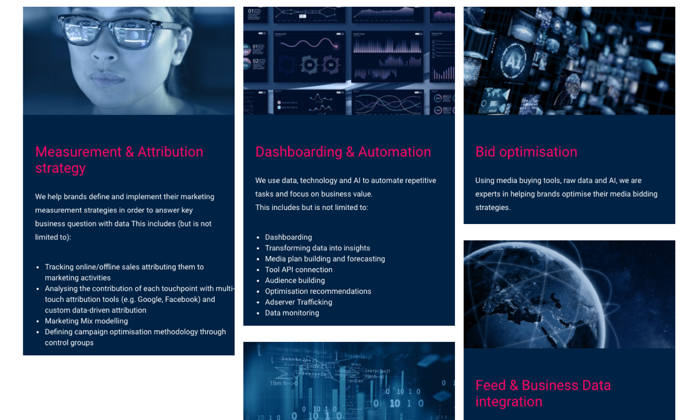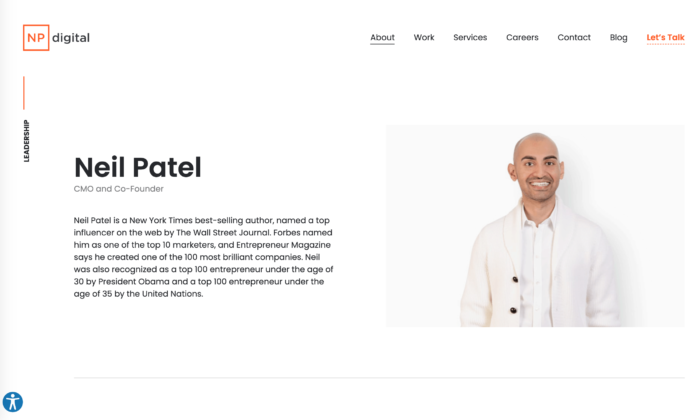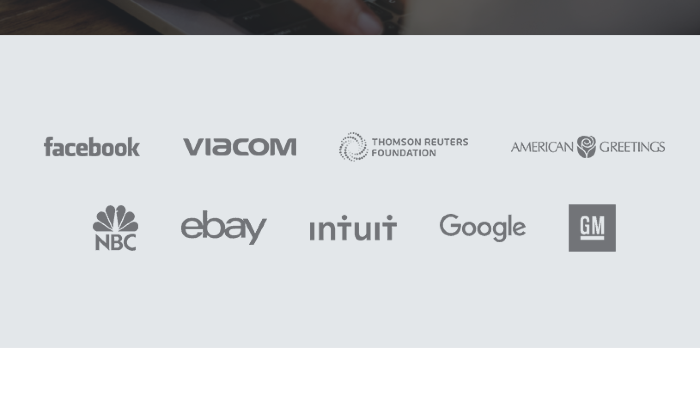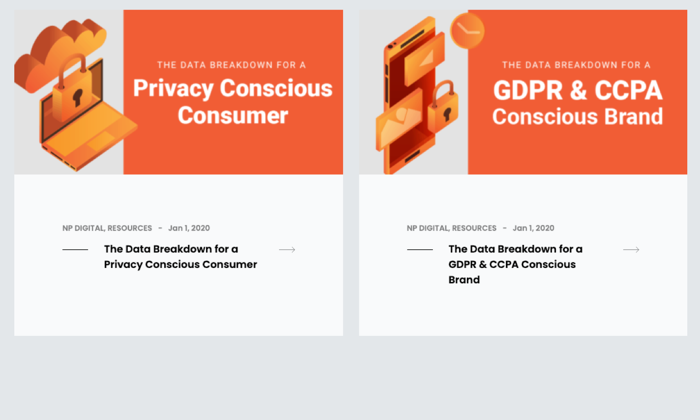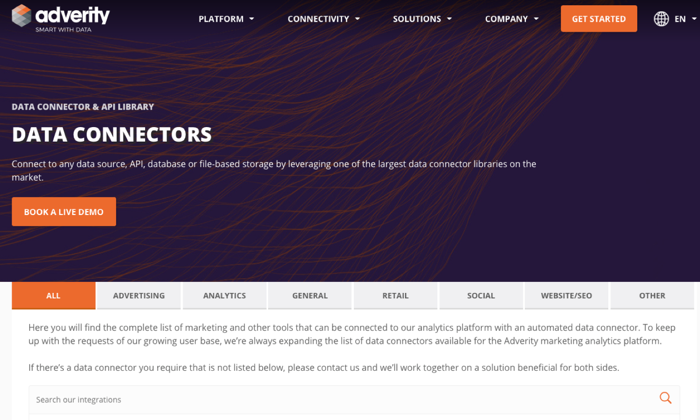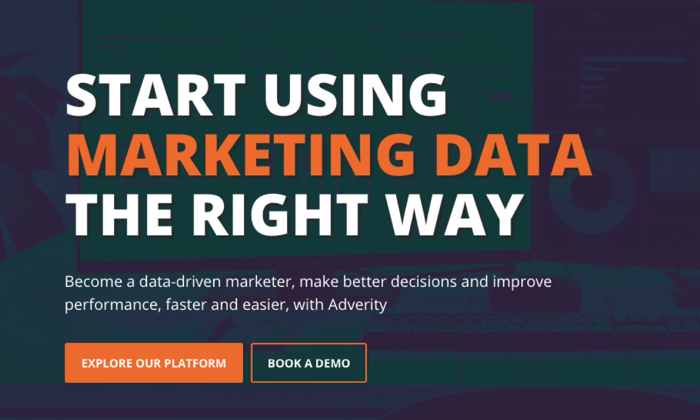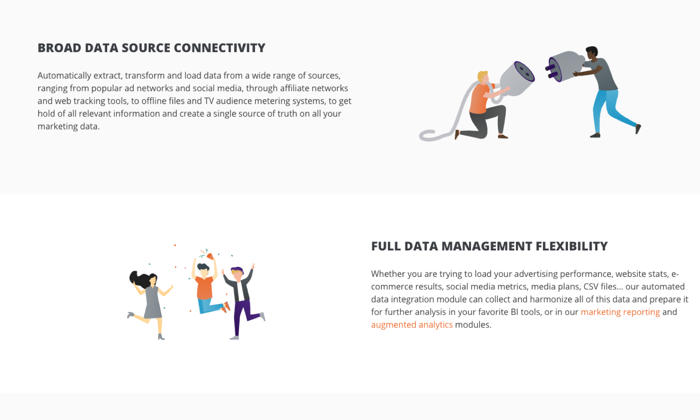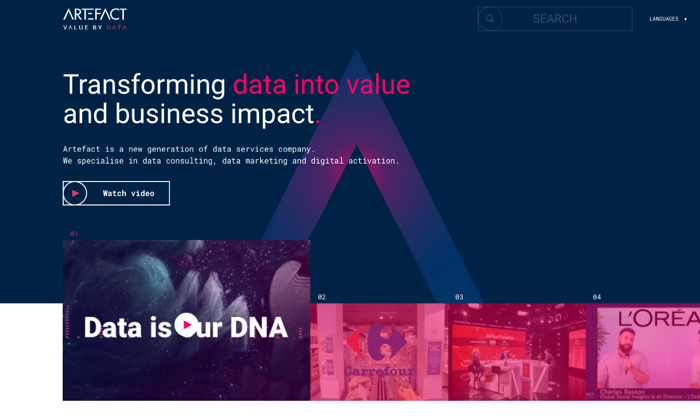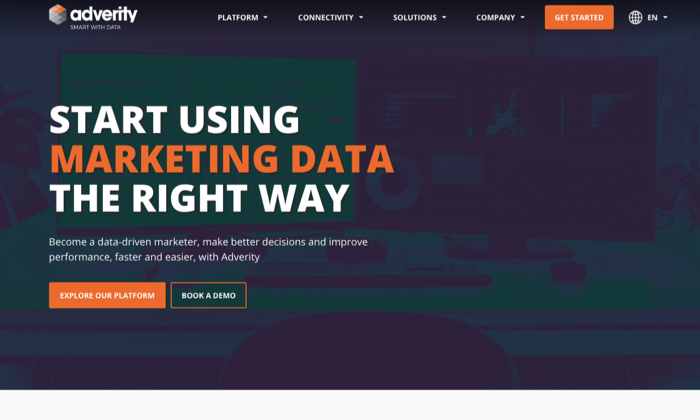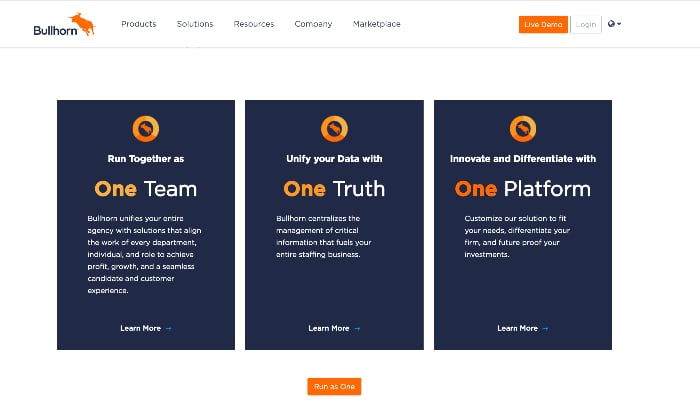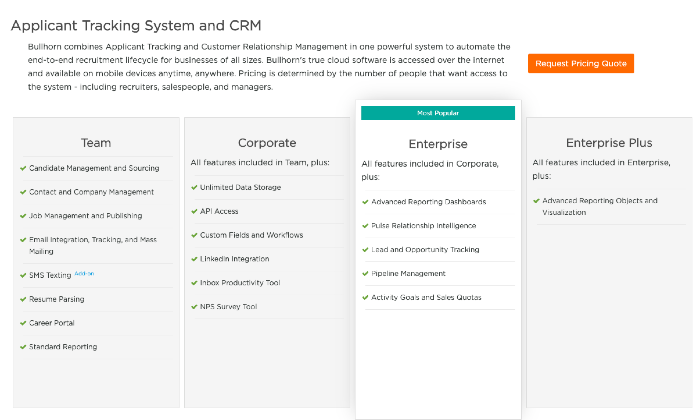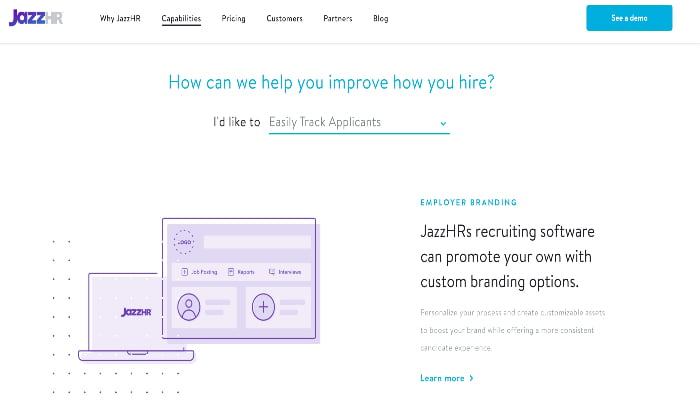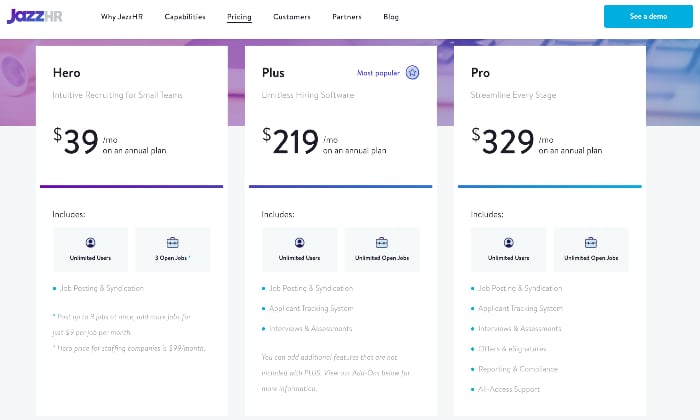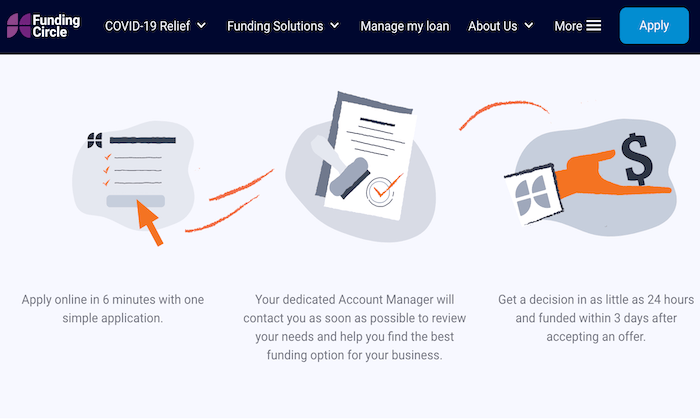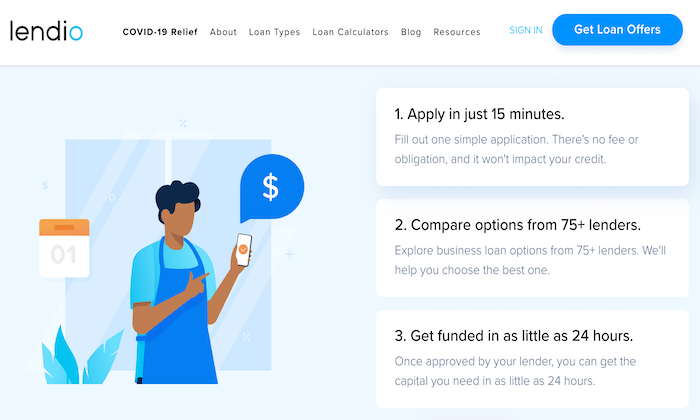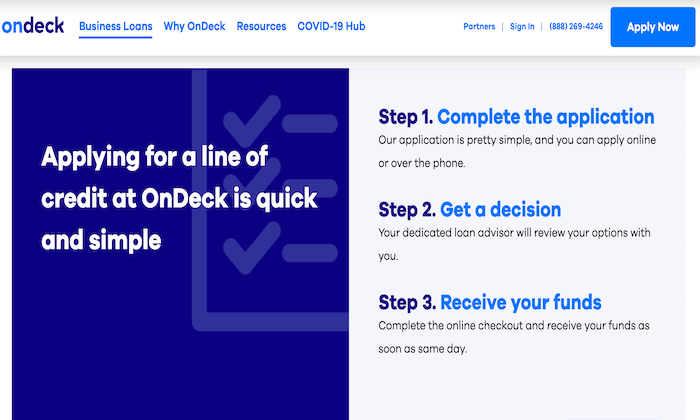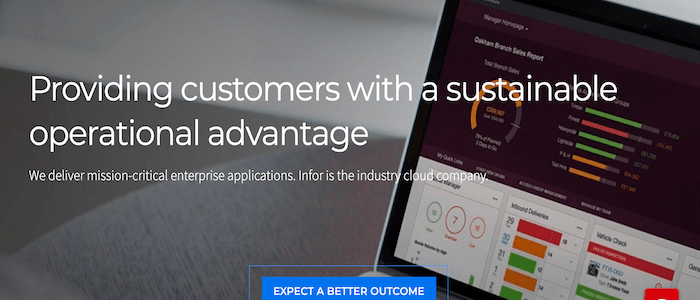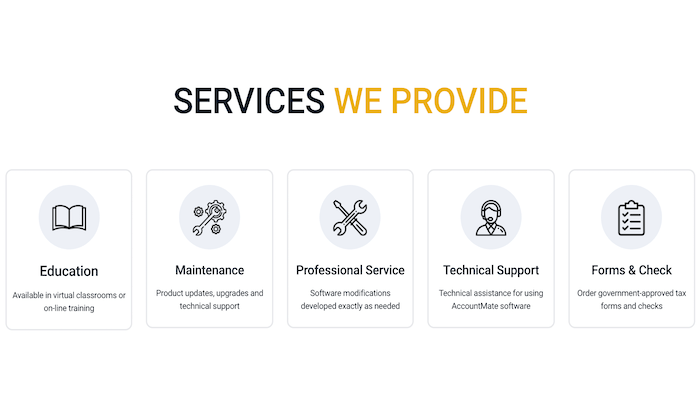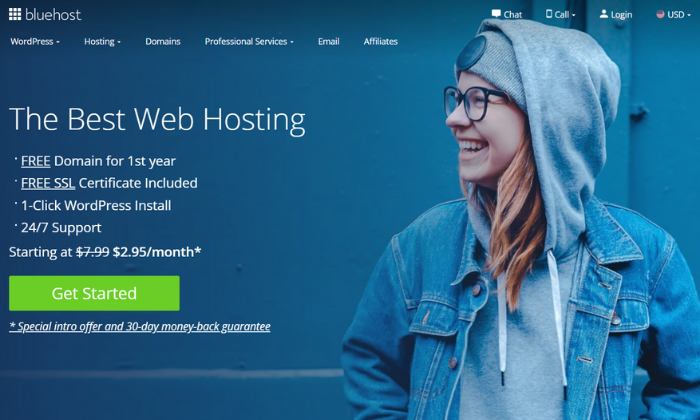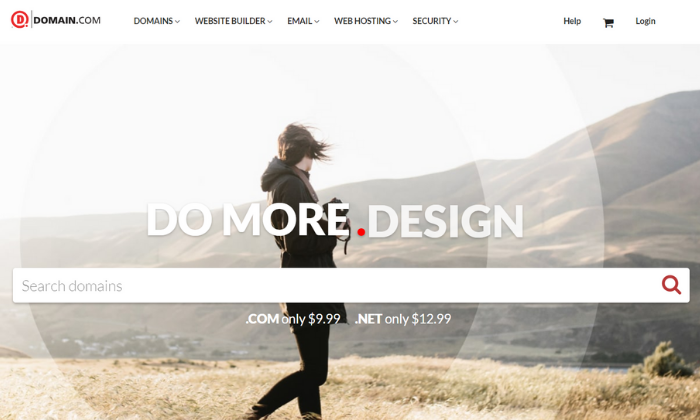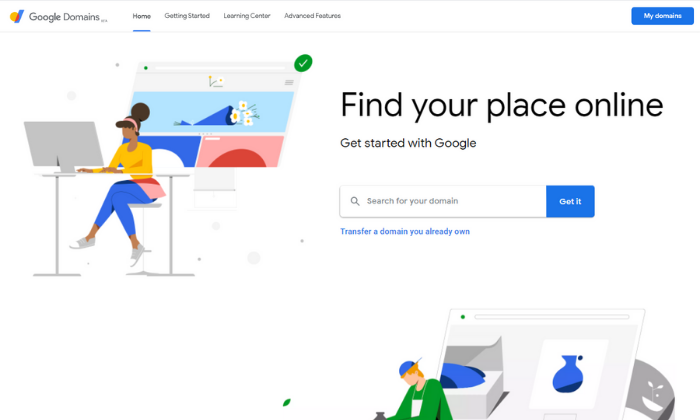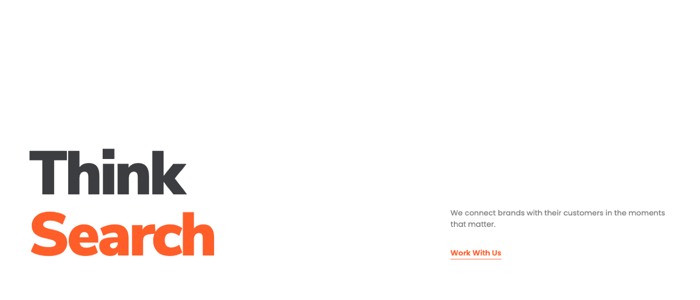
The 5 Best Reputation Management Companies of 2020
Researchers at Womply analyzed 200,000 small businesses in every state, looking at a few dozen industries.
They found that businesses with more than 82 total reviews earn 54 percent more money. It isn’t just about getting reviews either. Businesses achieved moderate to large jumps in revenue from the simplest tasks. Claim your profile on at least four review sites? You earn 58 percent more revenue. Businesses that reply to their reviews 25 percent of the time earn 35 percent more revenue.
Here’s the problem many businesses run into.
They don’t know what they’re doing. Most know how to ask customers for reviews, but they’re unsure how to handle the other important parts of reputation management.
This is why it’s important to get help.
If you have the right reputation management company, you’ll have the help you need to improve your company’s online reputation.
The 5 Top Reputation Management Companies in The World
Here’s a shortlist of some of the best reputation management companies in the world. You can use review sites like Clutch.co, HubSpot Agency Directory, or Sortlist if you’re looking for something more specific in the reputation management industry.
1. NP Digital – Best for Local SEO and Reputation Management
NP Digital is my agency. If you’re familiar with my work, you know that I have a strong background in search engine optimization and digital marketing. I built an agency called Pronet Advertising more than 17 years ago, while I was still in high school.
It’s hard to believe that I’ve been a marketer for more than 20 years! That’s given me a lot of time to learn how reputation management integrates with local search, content marketing, social media marketing, and advertising. I took all of the lessons I’ve learned from the companies I built — Kissmetrics, Crazy Egg, Pronet, Quicksprout, NeilPatel.com, and now NP Digital.
My agency is a little bit different from other agencies.
NP Digital ties all of our work back to revenue. It’s no different with our reputation management campaigns. If you’re going to put a dollar into your campaign, you want two dollars back, right? My agency focuses on driving real business results, so your company continues to grow; our work has to make money for your business.
NP Digital’s client list includes:
- Viacom
- GM
- eBay
- NBC
- Thomson Reuters foundation
- TechCrunch
- Cheezburger
- American Greetings
2. Reputation X – Best for Reputation Recovery
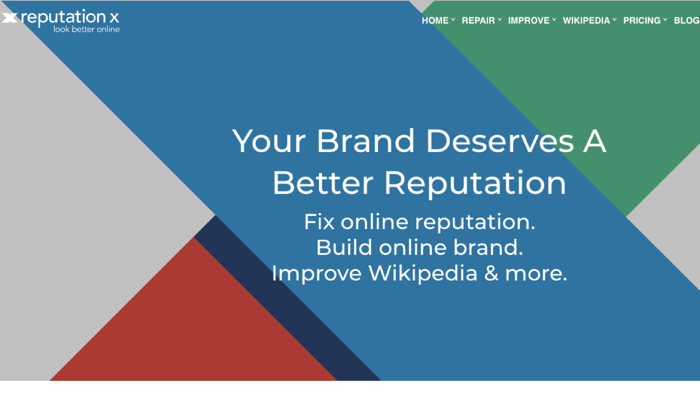
Reputation X offers proactive and reactive services, but they lean more towards the reactionary side of reputation management.
Proactive reputation management options include — content development (articles, reviews, news, blog posts, ratings, etc.). Reactive reputation management options include takedown services, including — SERP removal, search result suppression, DMCA removals, reputation protection, and content suppression.
Reputation X has more than 15 years of experience in the industry. What’s significant about their service is the fact that they’re comfortable working with organizations and individuals.
“Confidential clients include Heads of State, Politicians, SMBs, Celebrities, Public Relations Agencies (white label), and just regular folks.”
According to their website and marketing materials, they avoid pre-made campaign templates, which are common in the industry. They build each campaign from scratch, which makes sense when you realize that their service starts at $10,000. As expensive as their services are, they’re not for everyone.
“The Reputation X client acceptance process is unique. Prospective new clients must be approved not only by management but by team members as well. That means many never become clients. In addition, prospective customers whose reputation management problems seem too tough to overcome are always informed of the fact. Alternatives are clearly explained, even if they never become a client.”
They’re pretty picky about the clients they choose and the work they accept.
Reputation X’s confidential client list includes:
- Law firms
- Healthcare organizations
- Fortune 500 executives
- Manufacturing firms
- Public Relations companies
3. Thrive – Best for Small Business Review Management
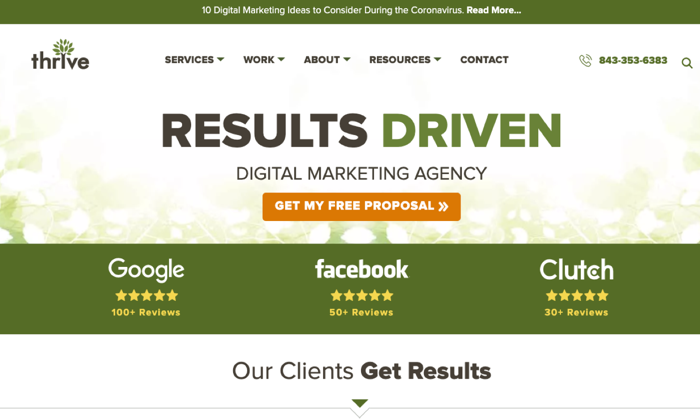
Thrive is a full-service agency that offers reputation management and reputation repair services. Thrive offers reputation management and repair services on their website; take a closer look at their website, and you’ll find that they’re really focused on the online review side of things.
If you’re looking for a reputation management firm with the legal and takedown chops to protect your business Thrive isn’t the reputation management company for you. If you’re looking for an agency that can generate a huge amount of reviews, Thrive may be a good fit. If you’re looking for an agency that’s oriented around small businesses, winning new customers over or burying negative press Thrive is a great place to start.
Thrive offers most of the services a full-service agency provides. If you’re looking for a Jack of all trades, their agency has experience in several areas; this works especially well for inexperienced small business clients who need help with multiple services.
Thrive Agency’s client list includes:
- Nationwide Construction
- Ready Seal
- Bonds Ellis Eppich Shaffer Jones
- Max Mechanical
- Quick Roofing
4. Reputation Rhino – Best for Individuals
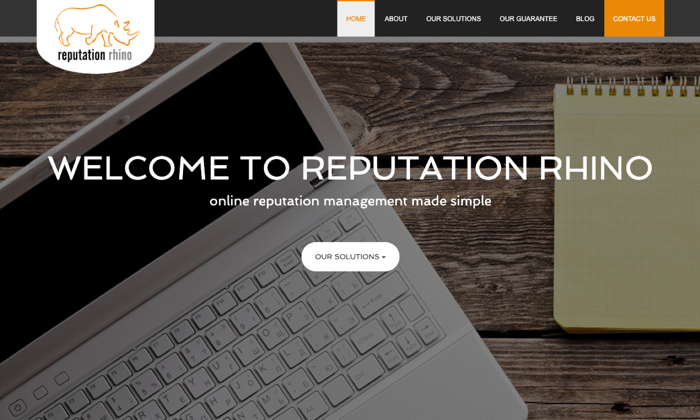
Reputation Rhino specializes in online reputation management; they serve small- and midsize businesses and individuals. Since then, they’ve expanded to create a range of brand management and internet marketing services that they offer to companies and individuals.
All of the services they now offer — SEO, PPC, Social media, Web development — they’re all geared around their reputation management services.
It’s not as common, but Reputation Rhino offers clients a money-back guarantee.
They offer reputation management and repair services; One thing that’s surprising about their business is the fact that they’re able to remove negative reviews from online review sites like Glassdoor, Ripoff Report, Google Images, and more.
Their agency is small but so is the price; campaign pricing starts at $1,000.
Reputation Rhino’s client list includes:
- Colleges
- Reputation management companies
- Law firms
- Local businesses
- Retail storefronts
- Tech companies
5. Reputation Defense Network – Best for Reputation Management Specialist
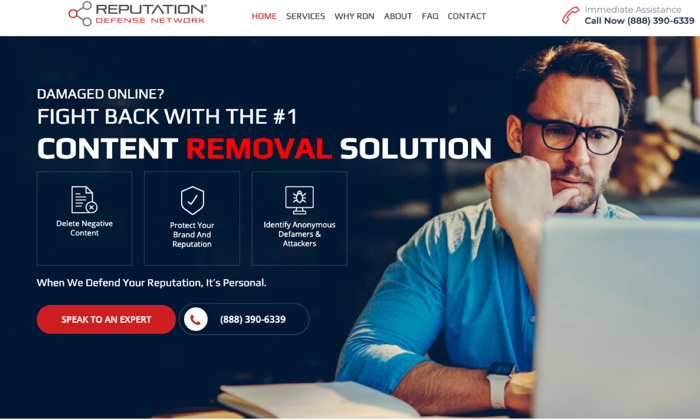
The Reputation Defense Network specializes in one thing: Content removal. They focus their attention on deleting negative or malicious content, protecting client brand reputation, and identifying anonymous hackers, defamers, and attackers. They also include proactive reputation management services, but their focus is geared around takedowns.
Here’s how they describe their service:
“Reputation Defense Network is one of the fastest-growing Internet Content Removal companies in the US. We are the only company to offer guarantees on all of our work. We are not an SEO or marketing firm disguised as a reputation management company. Our focus is your reputation, nothing else.”
They use their 27-point removal audit to remove negative content permanently. They focus first on removal, then suppression. One thing that makes their value proposition unique is the fact that they offer cyber investigation services.
If you’re looking for a reputation management company with a significant amount of firepower and legal muscle, the Reputation Defense Network is a good fit. Their services are perfect for high-stakes reputation management — the kind that includes blackmail, fraud, defamation, etc.
They provide performance guarantees on all of their work: “you don’t pay until we provide you with a favorable result.”
That’s $0 upfront, 100 percent (permanent) content removal with an average turnaround time of 72 hours. If you’re in a competitive industry and you’re dealing with confidential, high-stakes information, this agency is a good fit. The majority of their clients are growing, mid-market firms in the $10M to $1B range.
They serve clients in the following industries:
- Business services
- Healthcare and medical
- Education
4 Characteristics That Make a Great Reputation Management Company
When you’re vetting an agency, you’ll want to find a company that displays the right characteristics. The last thing you want is to choose a reputation management company that makes your reputation worse. When you’re searching for the right agency, here are some attributes to keep in mind.
1. Their agency approach is proactive and reactive
The industry has matured quite a bit since reputation management of the 90s. Back then, agencies were focused on simply burying negative content. That’s still doable, but it’s much easier to guide the conversation from the start.
Asking customers to share their feedback via online reviews. Creating, claiming, and optimizing your review profiles; responding to customer feedback, these are all proactive methods you can use to improve your reputation. Deleting or burying toxic, inaccurate, or misleading content, sending out legal takedown notices, and working with law enforcement are reactive strategies.
You need both, but these strategies don’t provide a complete picture of online reputation management campaigns on their own.
2. They focus on building relationships
Old-school campaigns are focused primarily on silencing critics, enemies, and opponents. New-school agencies still have those skills if they need them, but they choose to focus their attention on building relationships with customers.
- Helping you take care of your customers
- Requesting reviews from customers
- Building reviews up on the right platforms
- Generating publicity and increasing visibility
- Responding to unfair attacks
- If you’ve made a mistake, they’ll help you earn a fresh start
You need an agency that understands both sides of reputation management.
3. They realize reputation management is ongoing
This doesn’t mean that your agency is trying to lock you into an unnecessary contract. Customers feel reviews older than three months are irrelevant. Agencies realize customers want to see consistent proof that you’re still performing well.
Reputation and reviews, they decay over time.
Your agency should provide you with an ongoing service that’s optional; they should provide you with the people, processes, and tools you need to manage your reputation well. They should have a team in place to manage outreach with customers, publications, and press.
4. They’re local search experts
Your reputation management agency should have experience in running and managing local search campaigns.
You want this because local searches are growing 50 percent faster than mobile search. As far as Google is concerned, online reviews are part of the local ranking factors that determine your rank and performance.
When it comes to local search, your reputation management company should have expert-level knowledge. They should know how to increase search engine and social media visibility. The easier it is for them to integrate local search, the better your reputation management campaigns will perform.
What To Expect From a Great Reputation Management Company
Here’s a shortlist of the things you should expect from your agency.
- They’ll show you the plan ahead of time: Your agency will provide you with an A to Z plan, outlining the macro and micro level components of your campaign. You should know exactly what you’re getting into — what your campaign costs, what their goals are, how long it will take to reach those goals and the reports they’ll provide.
- Openness and complete transparency: Your agency should answer all of your questions and concerns; this isn’t optional or negotiable. Your agency isn’t writing copy or designing a website. They’re working with your reputation, so the impact on your business is huge. You need to know exactly what they’re doing and how they’re doing it.
- Consistent communication: Your agency should provide you with constant communication, feedback, and reporting. You’ll need to provide them with the decision-makers and influencers who need to be part of the conversation.
You should see evidence of this before you sign on the dotted line. If agencies hide behind proprietary software or secret processes, you’ll want to walk away.
Conclusion
Reputation management is easier when you have the right company behind you. Many businesses don’t know what they’re doing. Most know how to ask customers for reviews, but they’re unsure how to handle the important aspects of reputation management.
If you feel the same way, it may be a good idea to get help.
Businesses that handle reputation management will see consistently large jumps in revenue. Completing simple tasks — claiming your review management profiles, responding to customers online, and requesting reviews — good reputation management leads to more revenue.
Use our guide to find the reputation management companies that are right for your business. Set your values, expectations, and needs ahead of time, and you’ll find choosing the right company is easy.
The post The 5 Best Reputation Management Companies of 2020 appeared first on Neil Patel.

